
DVI Clay Coil Pot,
Retired DVI cords, retired HDMI cords, wire

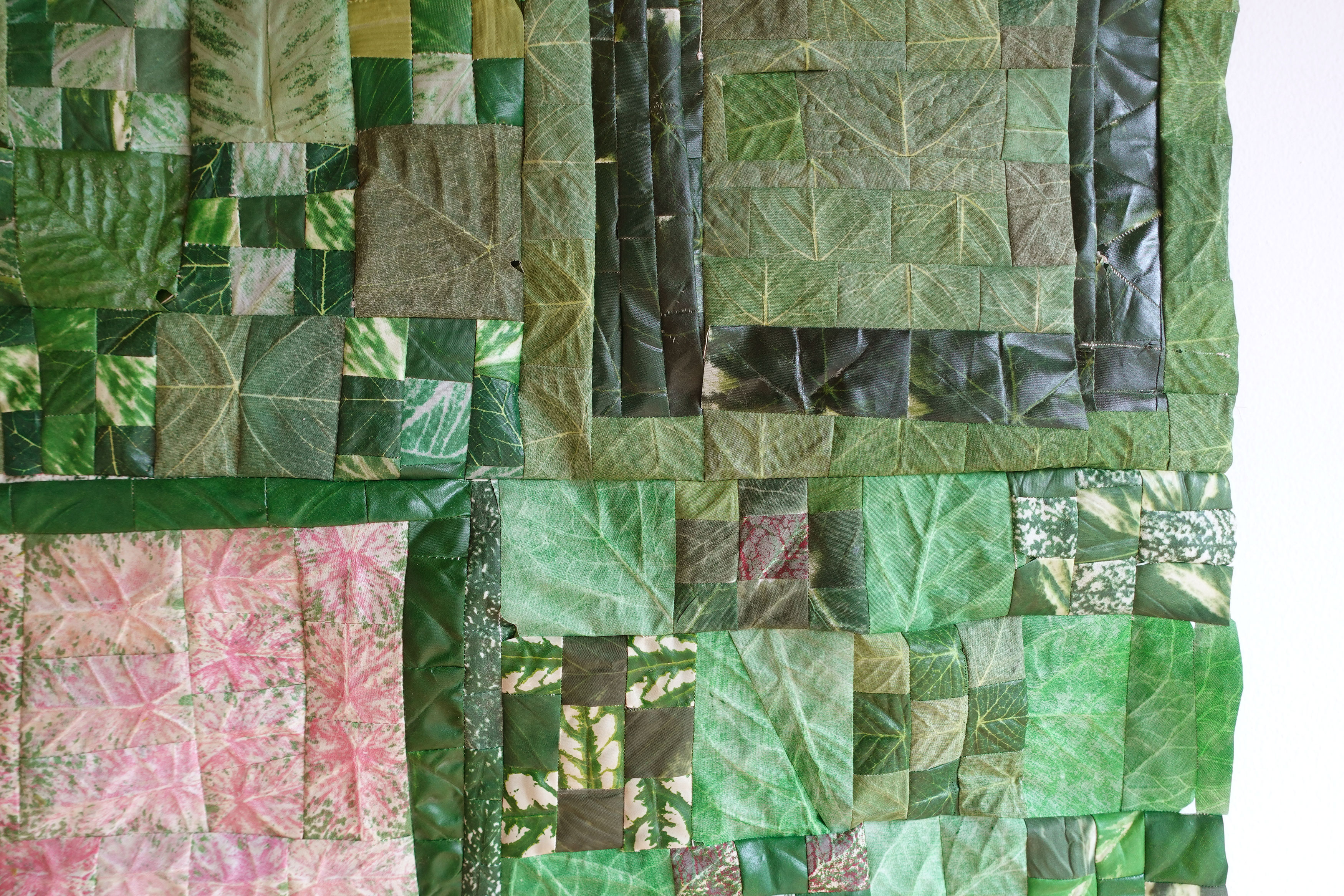
Post-Colonial Quilt
Discarded plastic plants, cotton thread
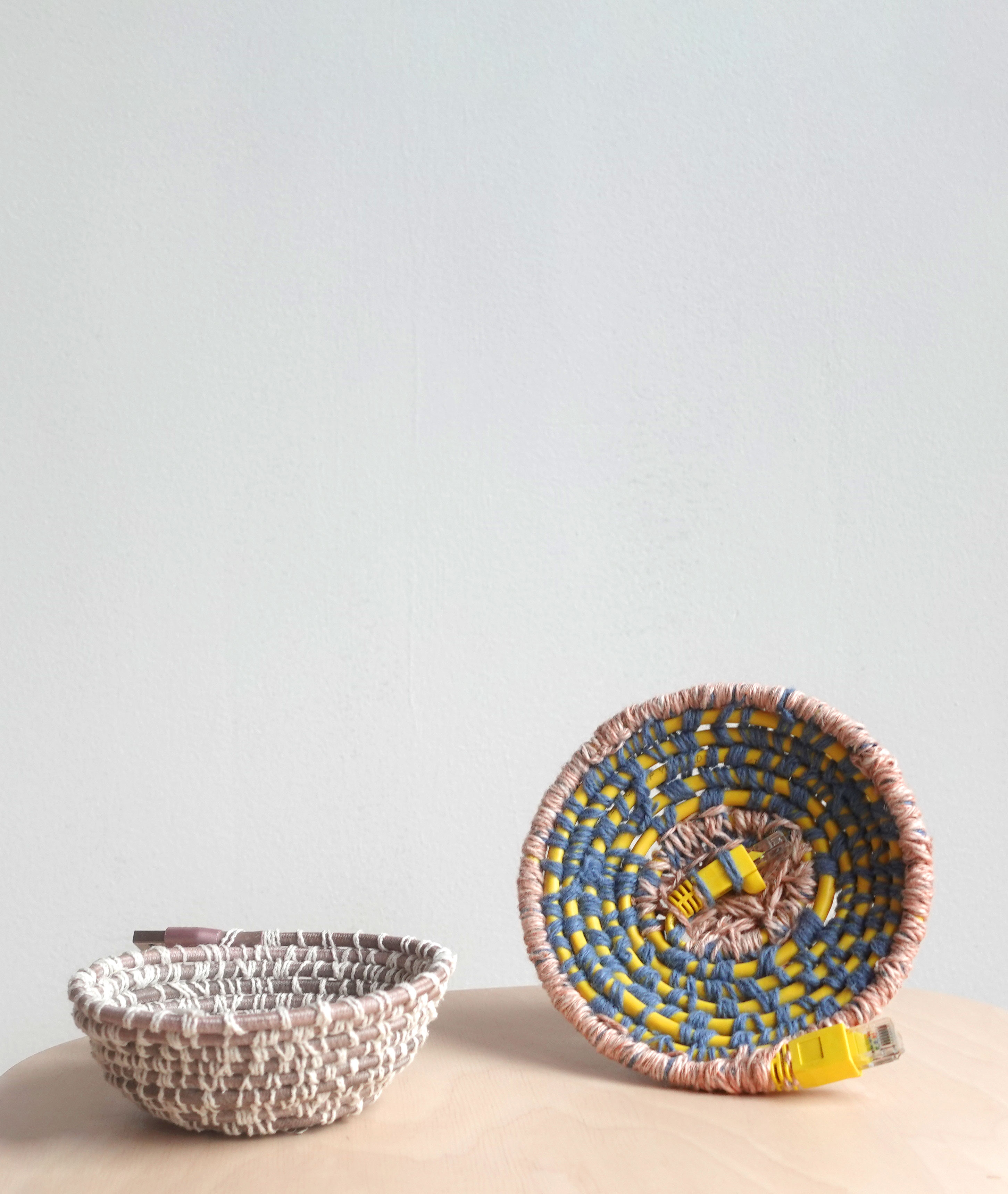
Cable Coil Baskets
Discarded USB and ethernet cords

Assembly Line Leaves
Discarded plastic plants
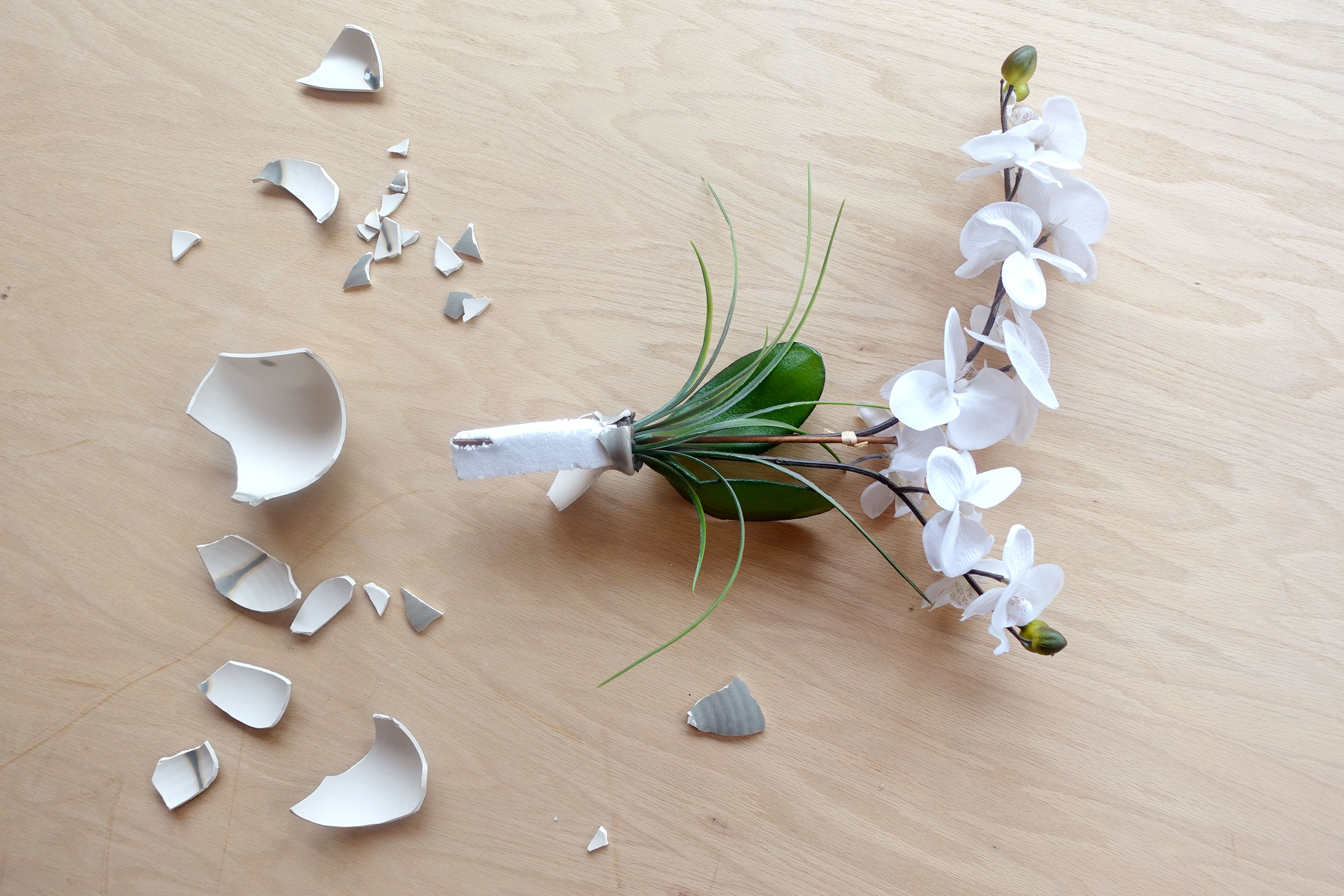
Styrofoam Core
accidentally shattered faux orchid

Land Lines
boundary marker tape collected from property lines in Santa Fe, NM, juniper
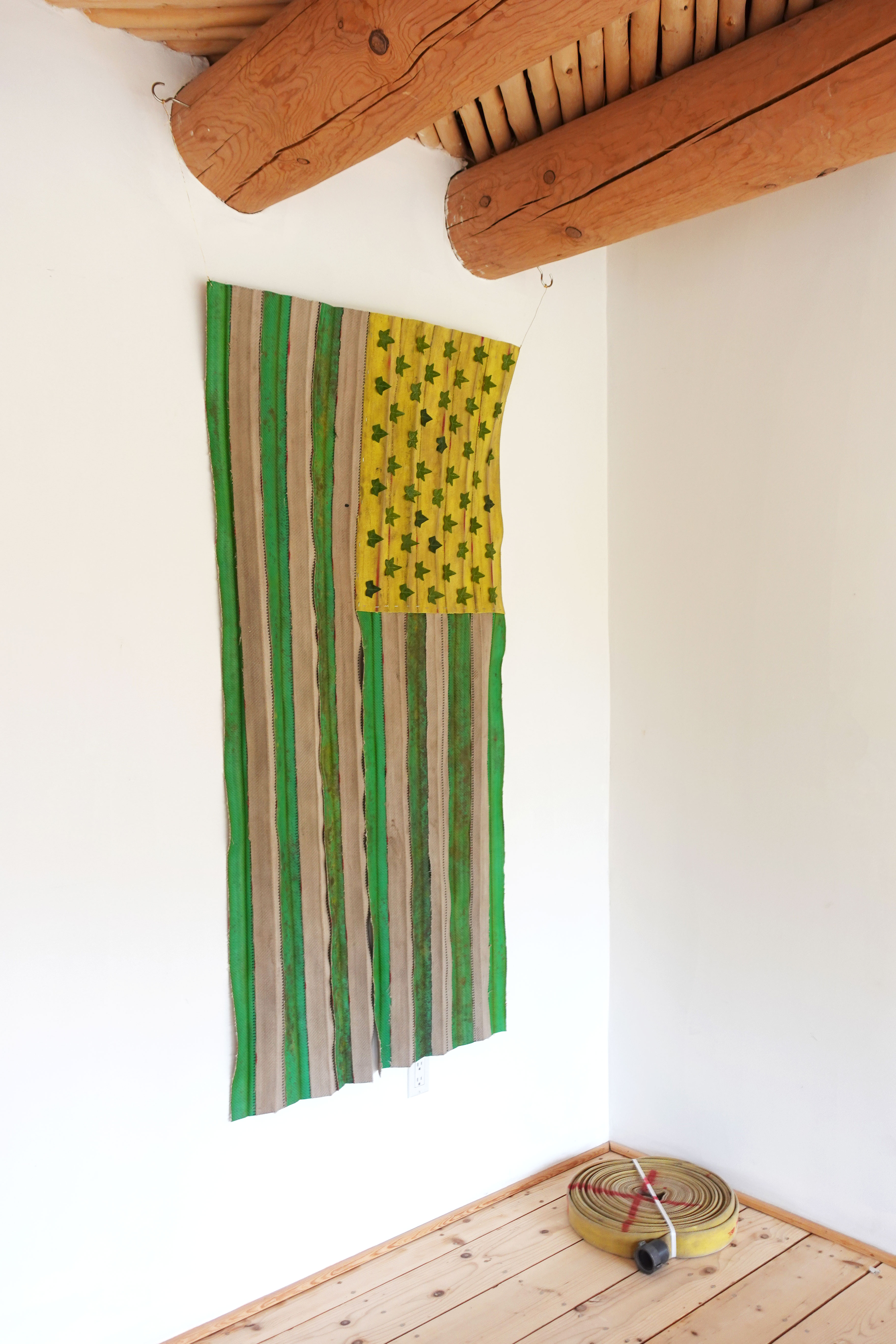
Decommissioned
decommissioned wild fire hoses, plastic plant leaves
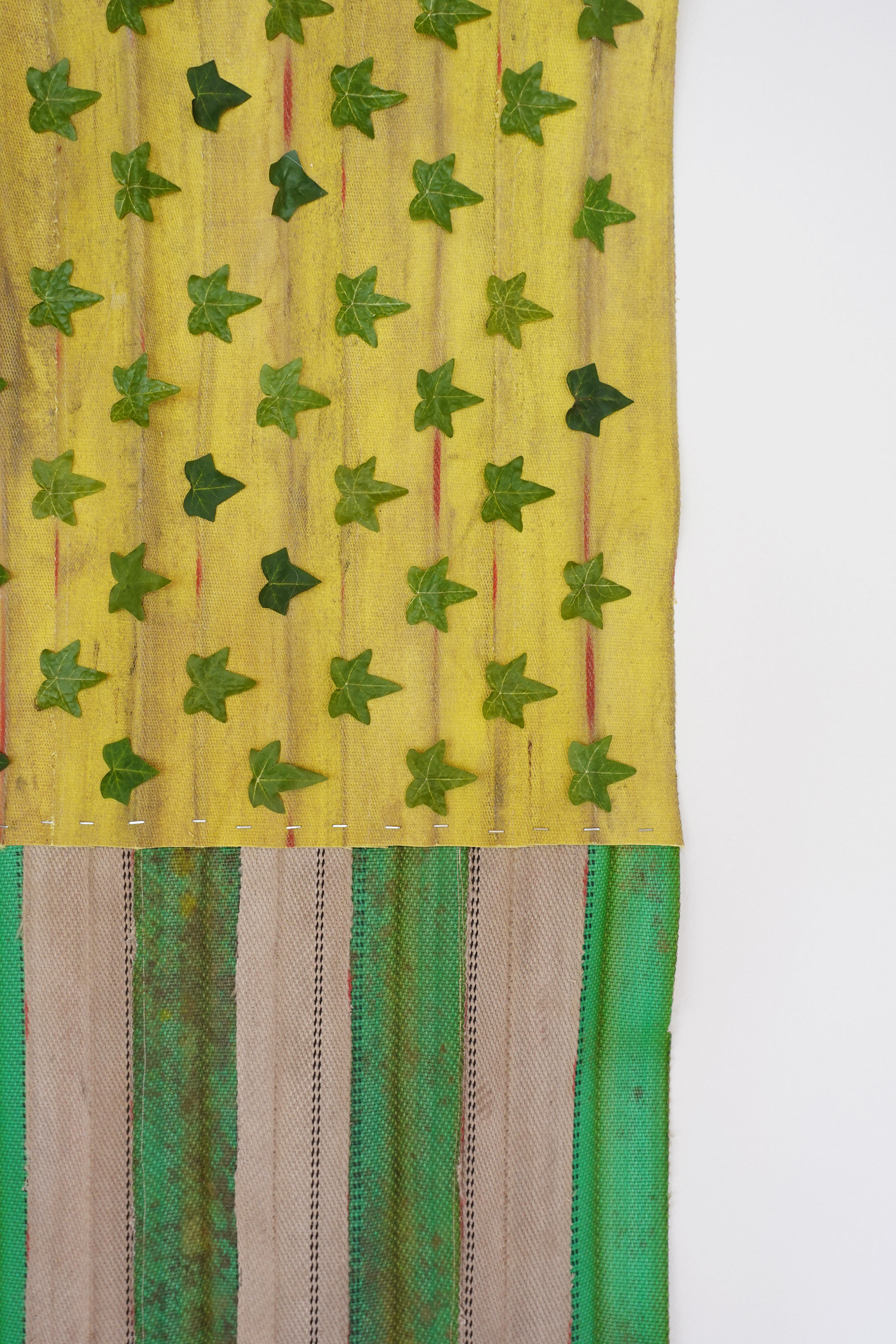
Due to the rising intensity of wildfires in the United States, the hoses used to fight these fires are decommissioned because they no longer meet the required pressure standards. Every year, 1 million lbs and 7 thousand miles of these hoses are decommissioned and become waste. These retired hoses are used to craft this American flag
Disparate Forms
quilted plastic plants,
google earth screen shots,
discarded computer graphics card
Technology
makes cities
Believing we can engineer nature
makes agriculture
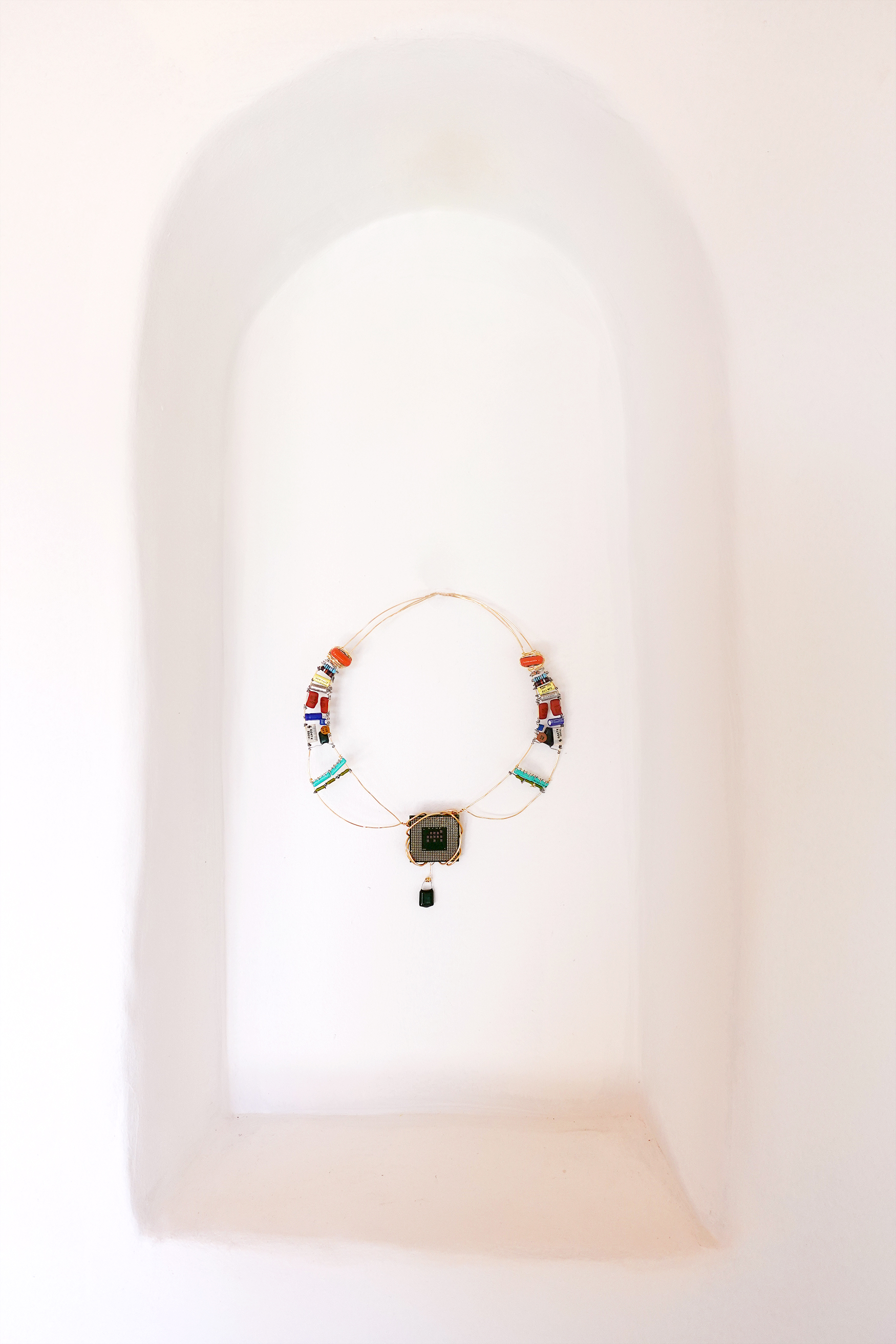

Adorned
discarded capacitors, resistors, semiconductors, and wire
This most recent body of work explores the contrast of power and production versus the inherent beauty and intelligence of the natural world (and our human bodies as a part of that natural world). By transforming and re-loving these discarded plastic plants, fire hoses and electronic waste, I raise questions surrounding the history of the U.S. and the origins of our broken relationship with the natural world. Re-fabricating these objects has also been a way of reconciling with my own origins. Growing up in suburban New Jersey, wild overgrowth was replaced with manicured lawns. At a young age, I was infatuated with sewing and wanted to learn how to make my own dolls. Instead of being taught how to sew, I was handed plastic barbies and babies. As I grew up, I began to understand that this sadness and loss I felt was not specific to me, but connected to something much bigger and more systemic. Rather than being raised in a culture that was rooted in a long standing relationship with the land, the subsequent emptiness I felt would be preyed upon by marketing and the perpetual invitation to consume. In the modern West, we become subject to this cycle of consumption and waste because we often don’t have something more true and nourishing to come home to. This work explores what it might look like to infuse care and craft into what we perceive to be dispensable. Infusing new life into these objects comes from engaging intimately with them through the process of hand making. The slowness of hand crafted objects becomes a radical act amidst the speed at which these mass-manufactured objects are produced. While the objects and material I draw upon are not made to decompose, in the creation of these pieces, there is a sense that they are finally being freed. Rather than being discarded, they have a chance to become something new and somehow more real.
